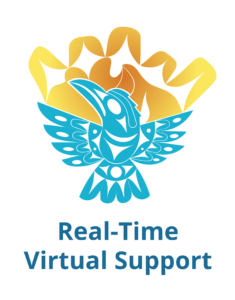 Real-Time Virtual Support (RTVS) is giving rural communities more equitable access to maternity and delivery services and helping rural providers feel supported along the way.
Real-Time Virtual Support (RTVS) is giving rural communities more equitable access to maternity and delivery services and helping rural providers feel supported along the way.
The Maternity and Babies Advice Line (MaBAL) was launched in August 2020. It is a 24/7 support line for rural providers who want to talk to Family Doctors with perinatal care experience. The MaBAL providers support calls ranging from questions about prenatal tests or medication during pregnancy to supporting imminent deliveries. The team can also help with other women’s health issues such as contraception. In addition, a team of Midwives does outreach and coaching for rural maternity providers.
MaBAL is one of the RTVS peer pathways, alongside a 24/7 line staffed by pediatricians (CHARLiE) and a 24/7 line staffed by emergency physicians (RUDi).
The pathway has had a huge impact on the rural providers and patients it has supported.
Dr. Danette Dawkin was on call when a patient who was 26 weeks’ pregnant showed up at the Chetwynd ER with an umbilical cord prolapse.
Dr. Jodie Graham, the chief of staff at Chetwynd hospital, was also in the vicinity and got called in.
“Dr. Graham came in and we kept MaBAL on an iPad with Dr. Graham and the patient in the room,” said Dr. Dawkin. “I worked between rooms with a BC Children’s Hospital neonatologist to transfer patient out, and to support Jodie and patient with orders from MaBAL for drugs and equipment.”
Dr. Dawkin explained that Dr. Graham had to support the unborn baby for over three hours. “In this case you must prevent delivery and prevent the pressure of gravity and the weight of the baby from compressing the cord, which can be fatal for the baby. You must get to a safe centre and have access to a neonatal team.”
Drs. Dawkin and Graham were able to ensure the mom and baby got to a higher level of care, in part thanks to MaBAL.
Dr. Graham said: “With family medicine you just get a broad scope. You’re not an Obstetrician, but you deal with all of those things.”
She said one of the toughest things is that you only see difficult maternity cases every once in a while so you don’t get enough experience to be confident when there is a complex case.
“I can do a delivery, but, when was the last time you’d seen a 26-week cord prolapse walk in? And there’s nobody to take it to. So having that support from MaBAL is so helpful because you just can’t remember it all. You know you’ve read things before, but can you pull it out in the moment? It’s tough.”
“I can do a delivery, but, when was the last time you’d seen a 26-week cord prolapse walk in? And there’s nobody to take it to. So having that support from MaBAL is so helpful because you just can’t remember it all. You know you’ve read things before, but can you pull it out in the moment? It’s tough.”
Dr. Jodie Graham
But calls to MaBAL are even helpful for people who deliver babies on a regular basis.
Midwife Celina Laursen, who is based on Haida Gwaii, said MaBAL was instrumental in helping her deal with a stressful transfer.
After a prolonged labour that wasn’t progressing, the decision was taken to transfer a patient to a higher level of care.
Laursen said the transfer was complex because it involved ambulances, the coast guard, the Patient Transfer Network (PTN) and providers on both sides of the water. During the transfer — after a prolonged period without sleep — Laursen started to question what pain medication would work best in this particular case.
“There is so much going on, I’m running between PTN, coast guard, local ambulance, and nurses,” she explained. “I couldn’t think in that moment and it was perfect to have MaBAL to call, perfect.”
Laursen, who has been delivering babies for more than 20 years, said she was so grateful to have been able to call and get friendly, helpful advice from the MaBAL provider.
“We all know that feeling of second-guessing yourself,” she said. “We all have been in that place where afterward we’re like ‘oh, should I have done that?’ and it’s so nice to have that outside support so you don’t worry.”
Dr. Sheila Curran, a MaBAL provider, said it was also rewarding to be the one to take the calls for help.
She said: “As a rural/remote doc myself, it’s a real treat to be on the RTVS side of the screen, where the adrenaline levels are lower and there’s more brain capacity to step back and think about the big picture.
“I really value the culture of peer support and respect within RTVS and it feels great to be able to bring some calm support to my rural colleagues who do such amazing work under incredibly challenging circumstances.”
Learn more about RTVS here. If you are a rural provider, more information on how to get started is here.